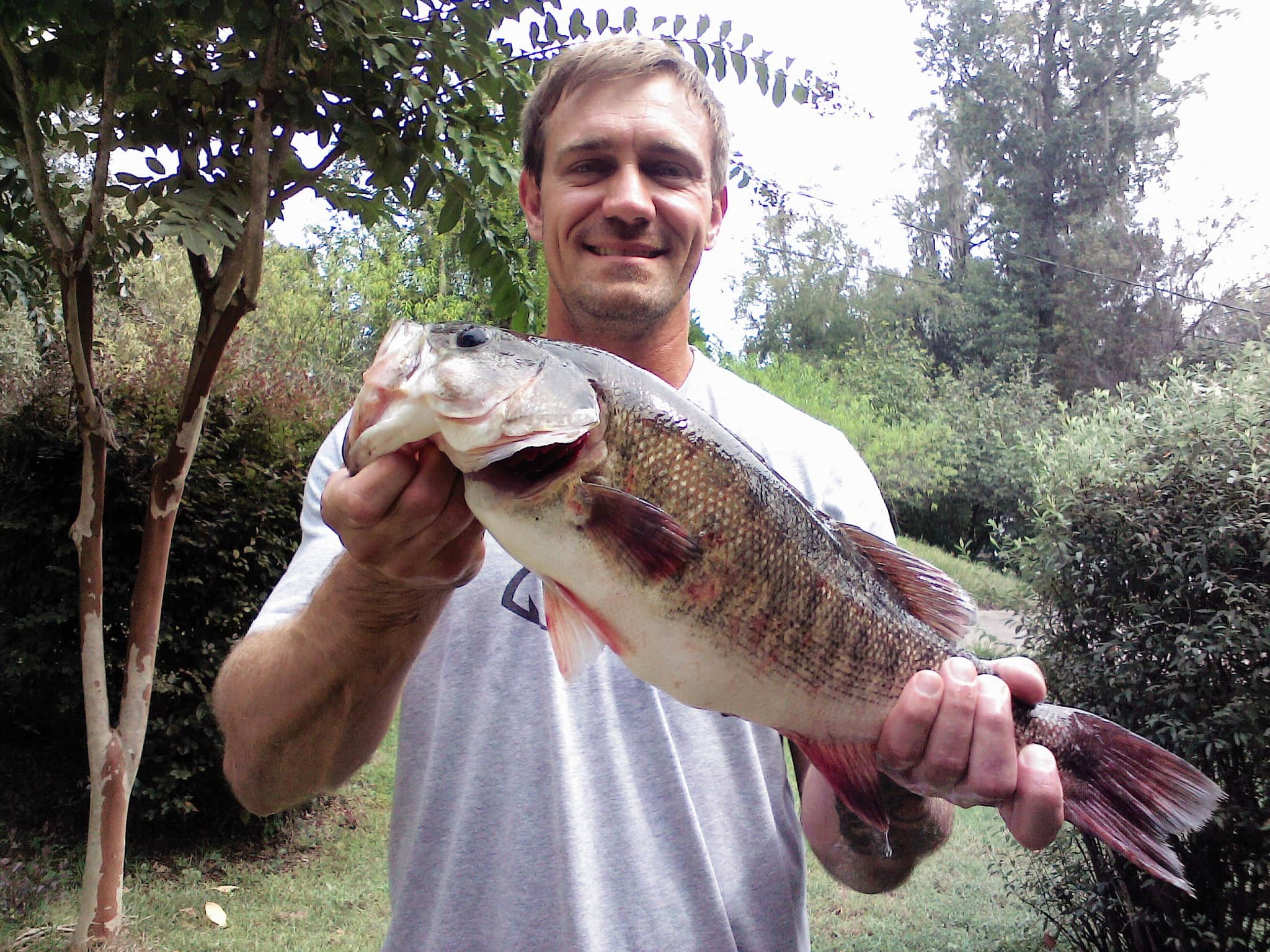Florida Angler Catches State Record Shoal Bass
OutdoorHub Reporters 09.30.15

The Chipola River is arguably the best place in all of Florida to catch shoal bass, and according to experts, there is no better time than now. As proof of that fact, the Florida Fish and Wildlife Conservation Commission (FWC) announced that the state record for shoal bass has been broken yet again by a fish from the Chipola.
On September 19, 41-year-old Stewart Mayeaux pulled an impressive four-pound, 14-ounce shoal bass from the river, beating the state’s previous jointly-held record.
“When the fish hit, at 8 a.m. Saturday morning, it dove for the bottom, trying to rub the treble-hook loose. After a nice fight, Mayeaux reeled her in, called the FWC and placed her in an aerated tub until fisheries biologist Chris Paxton arrived to verify the species and weigh it on certified scales,” the FWC stated.
Last December, Charles Tucker set Florida’s first official state record shoal bass with a 4.15-pound fish. Just a few months after that, Tucker Martin surpassed that record with a 4.49-pound shoal bass on March 8. Jamie Coleman followed that with a 4.50-pound bass on March 17. Since record fish under five pounds in Florida must exceed the previous record by at least 1/4-ounce to hold the title solo, Martin and Coleman held the previous record jointly.
The concentration of records caught over the last several months drew the attention of many anglers, and Chipola River’s once well-kept secret soon turned into a hot fishery. Mayeaux was one of many who came to the river for a chance for a record-sized fish, and he may not be the last to succeed this year either.
What makes this year’s shoal bass so big? According to biologists, it may be due to water levels and lack of fishing pressure.
“Shoal bass year classes on this river are largely controlled by spring water level,” FWC biologist Andy Strickland told FloridaSportsman.com. “Low-water years produce big year classes while high-water years can result in poor year classes. All the big fish we’re seeing are likely 7, 8 and 9 year old fish from the low water years of 2006, 07, and 08.”
Biologists encourage anglers to practice catch-and-release as shoal bass are currently considered a “species of greatest conservation need.” Shoal bass once thrived across the Apalachicola water system, but habitat degradation and other factors have greatly limited their range. The FWC is currently proposing new rules that would make the species catch-and-release only on sections of the Chipola River.

